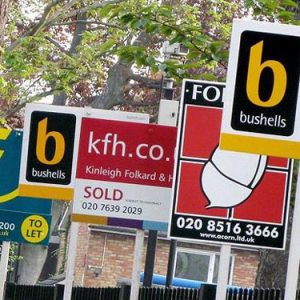
The September residential market survey from the Royal Institution of Chartered Surveyors (RICS), added that new instructions were in decline, with a net balance of negative 12 per cent*, which is a slight improvement on negative 15 per cent last month.
The net balance for market appraisals also fell to negative 20 per cent, down from negative three per cent in August, which RICS said suggested that pipeline for supply has deteriorated over the past month.
Agreed sales’ net balance was negative 27 per cent, which RICS said was in-line with continued pull-back in sales volumes. RICS said this figure was the “softest reading” since May.
Near-term sales expectations are negative, with a net balance of negative 30 per cent, and for the 12-month horizon the net balance came to negative 39 per cent indicating that most participants in the market think sales levels will decline.
Regarding house prices, a positive net balance of 32 per cent shows that many thought house prices had risen in the three months to September, but RICS said this showed a “noteworthy easing in the pace of growth”.
Looking ahead, 12-month expectation have turned negative, with participants points to significant increases in mortgage rates putting pressure on the market.
A negative net balance of 18 per cent foresee a drop in prices over the next year.
On the rental side, tenant demand rose, with a positive net balance of 42 per cent reporting a rise in activity.
However, a negative net balance of 13 per cent reported a fall in landlord instructions, with RICS noting this could mean a growth in rental prices in the near term.
Negative sentiment suggests market slowdown
Tomer Aboody, director of property lender MT Finance, said that due to uncertainty around mortgage rates, along with rising cost of living meant it was “no surprise that negative sentiment is emerging”, adding that it suggested the housing market was slowing down.
He continued: “Until government and Bank of England policies are aligned, we will continue to face the uncertain shift in rates which means that buyers, along with sellers, would rather wait until things stabilise before making a move.
“This will mean a static market on the whole rather than price falls, unless sellers are forced to sell, which could be the case in some instances. Lenders will have to be helpful, sensible and imaginative going forward.”
“Pausing for breath”
Jeremy Leaf, north London estate agent and a former RICS residential chairman, said new buyers were “pausing for breath” to consider the extent and frequency of future interest rate hikes, which had dampened activity.
He continued: “Like us, many are waiting to see whether worries about mortgage repayments rising more quickly than expected outweigh benefits from cuts in stamp duty and other taxes – particularly for first-time buyers.
“Risks of a correction are greater but the market has proved its resilience repeatedly in the recent past. We’re told more borrowers have higher loan to value mortgage debt than in the last financial crisis of 2008 but we’re not seeing signs of a major correction in our offices yet.”
* RICS survey statistics are presented as scores between negative 100 and 100, with negative scores implying a decline, and positive readings suggesting an increase.
















